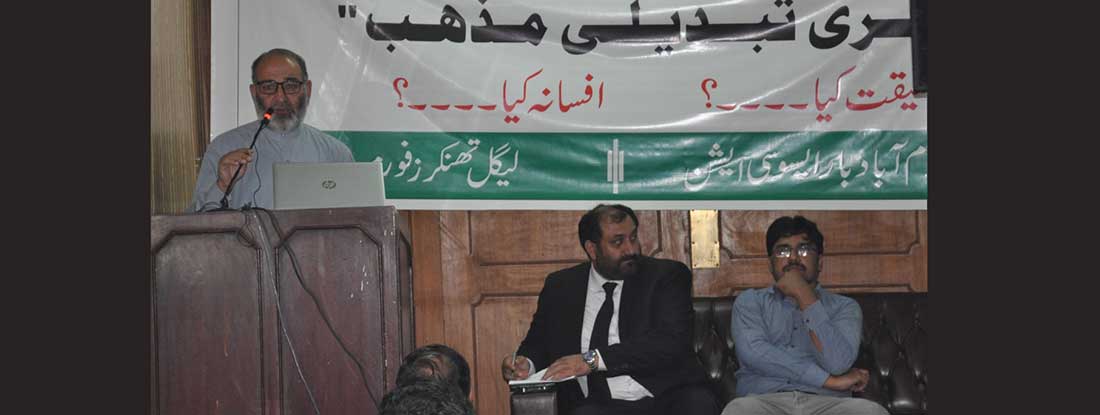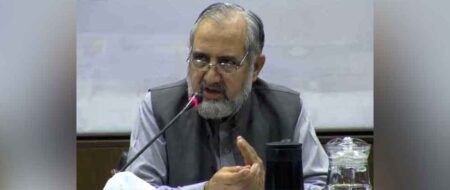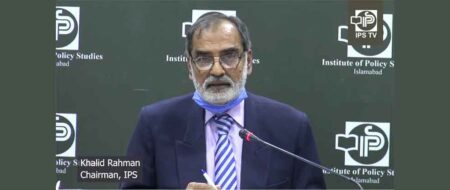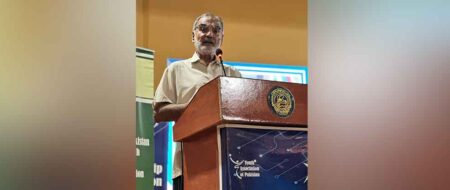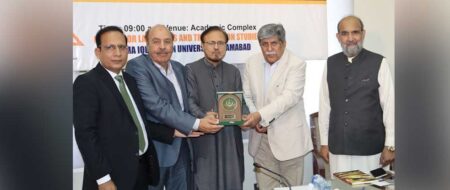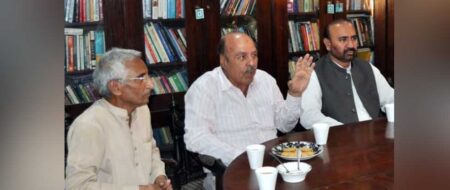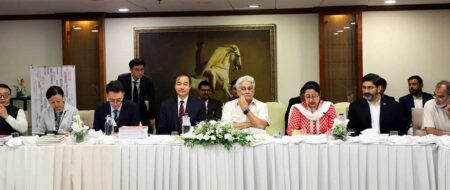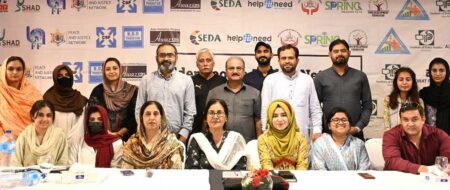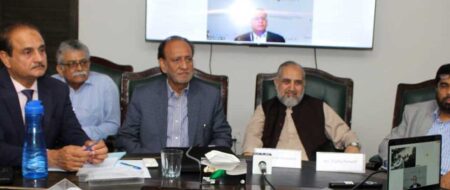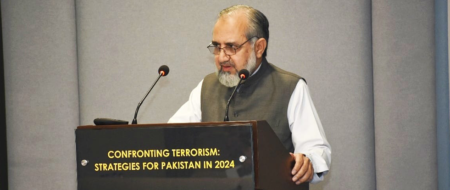Proposed Law on Faith Conversions needs to be based on research findings, not rhetoric
The bill that purports to prevent forced conversions in the country and is on the agenda of the Parliamentary Committee, has been proposed without proper research and appreciation of the facts that define religious conversions in Pakistan. The proposed legislation contravenes the basic tenets of the Constitution and flouts the legislative authority of the Parliament as it is being imposed by pressurizing the policy makers through tools like GSP-Plus.
This was the crux of the discussion held at a seminar ‘Rhetoric and reality of forced conversions in Pakistan’ which was organized by Islamabad Bar Association and Legal Thinkers Forum in collaboration with the Institute of Policy Studies (IPS) on October 5, 2021.
Sufi Ghulam Hussain, research officer at IPS and author of the IPS study ‘Forced Conversions or Faith Conversions: Rhetoric and Reality’, delivered the keynote address and spelt out the key features and findings of his research in the issue. Other speakers included Senator Mushtaq Ahmed Khan, Dr Ikram-ul-Haq and Dr Inamullah from the Council of Islamic Ideology, Rao Abdur Raheem Advocate from Islamabad Bar Association.
Sufi briefed the legal fraternity on the dynamics of discourse generated around the presumed forced conversions and said that none of around two dozen NGO reports provided any credible and verifiable evidence on the instances of forced conversions in Pakistan. “In fact, each such report cites another of its like to seek credibility and to give an impression of authenticity of its claims through tautological argument”, he said.
Debunking the allegation of 1,000 forced conversions of Hindu girls each year in Pakistan, Sufi explained that so-called human rights organizations fabricate data which was then propagated, cited, and projected by online accounts that are operated mostly from USA and India. The hype develops this allegation as a fact and is used to malign Pakistan at various forums. He put forth the empirical data obtained by IPS through participatory research, dozens of interviews from the cross section of society, and data of converted individuals, and said that the number of persons who had converted to Islam before the age of 18 was only a fraction of the total data and did not support the claim that minors are forced into Islam. He said that marriage becomes a key component of the whole process for the converted females because such women have to seek shelter and a new home immediately after converting to Islam despite immense pressure from their families and community. “There are several other factors involved in this major decision and it would be naïve to think that all conversions are meant for marriage”, he explained.
Outlining the vested interests of various groups behind the proposed bill, Senator Mushtaq alleged that the terms of reference of the Parliamentary Committee were developed in consultation of the Church of England and the US State Department, and that these terms did not include preparation of any legislative proposal. He alleged that a series of laws passed recently undermined the constitutional framework, parliament’s supremacy, and indigenous values and were driven by the quest to appease international donors.
The senator rued that the proposed bill is in contravention with the injunctions of Islam and the spirit of the 1973 Constitution which was made in the light of Allama Iqbal’s Allahabad address of 1930 and Quaid-e-Azam’s speeches delivered before and after the creation of Pakistan.
Other speakers considered the legal measures being mulled by the federal government to regularize faith conversion in Pakistan – including the proposed bill – as a divisive effort that posed a serious challenge to the interfaith harmony in the country and had obvious flaws on theoretical and practical levels.
Secretary IBA Liaqat Manzoor Kamboh Advocate said that forced conversion of any person would be a heinous crime and should be outlawed, but this should not be done on the basis of propaganda and politically motivated rhetoric.


